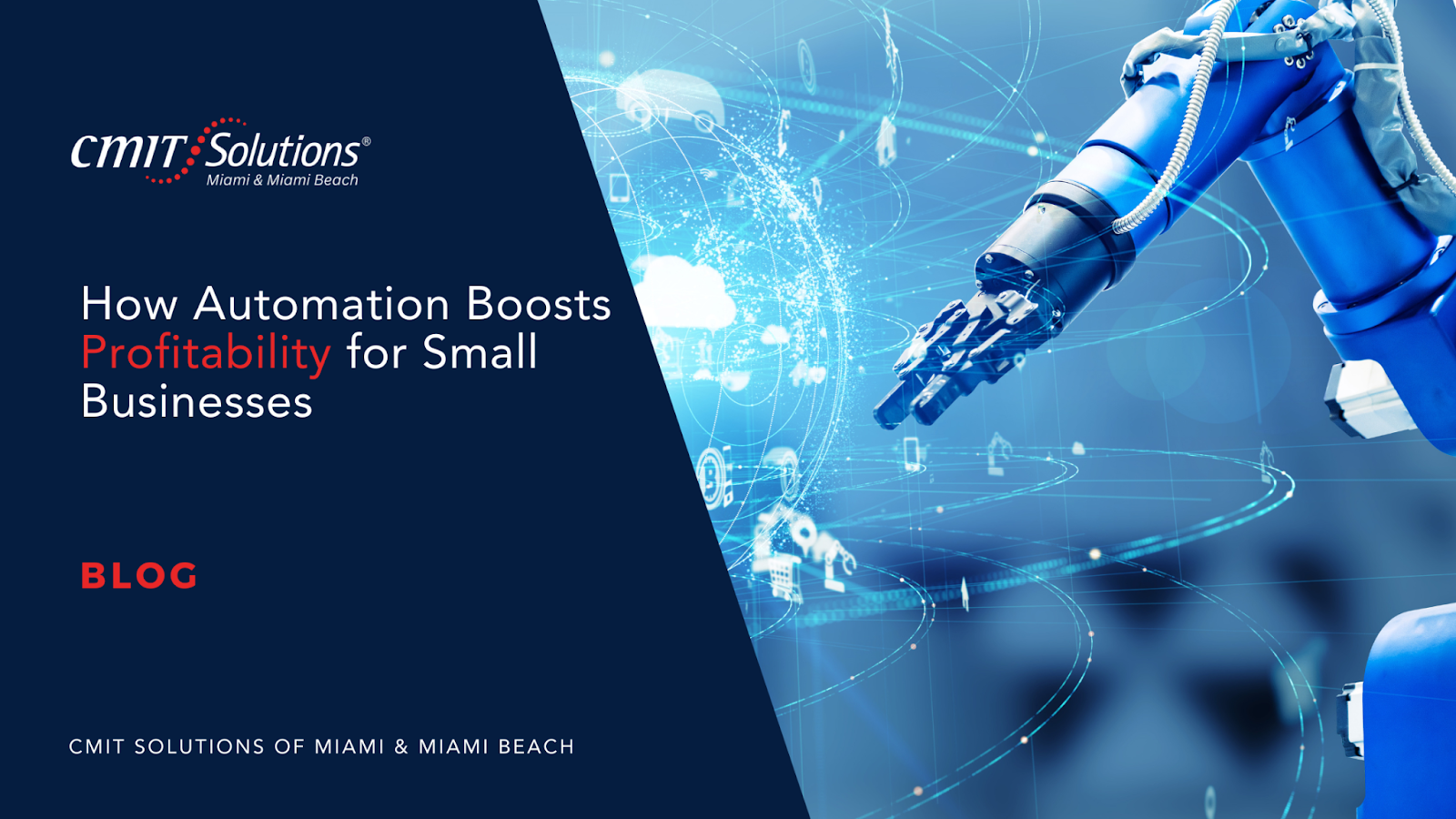In a competitive digital economy, small and medium-sized businesses (SMBs) must operate smarter, faster, and more efficiently. One of the most powerful ways to achieve this is through automation. From streamlining repetitive tasks to enhancing data accuracy and decision-making, automation is not just a tech trend—it’s a business strategy that drives growth and long-term profitability.
This blog explores how automation enhances operations, improves ROI, and positions SMBs for scalable success, while addressing potential risks and implementation strategies.
What Is Business Automation?
Business automation is the use of software and technology to perform repetitive, rule-based tasks without human intervention. This includes everything from invoicing and inventory management to marketing emails, HR onboarding, and IT ticketing.
When integrated with managed IT services, automation ensures these processes run smoothly, securely, and around the clock.
How Automation Enhances Efficiency
For small businesses, time is money. Automation minimizes manual tasks, reduces errors, and allows employees to focus on higher-value activities. Common areas where automation delivers efficiency include:
- Payroll processing
- Email marketing
- Scheduling and reminders
- Inventory tracking
By combining automation with tools like Microsoft 365, businesses can centralize workflows, improve collaboration, and streamline communication.
Reducing Downtime and Human Error
Manual processes often lead to mistakes—missed deadlines, duplicate entries, or misfiled data. These errors can cost thousands in revenue and reputation.
Automation minimizes these risks by:
- Running tasks on consistent schedules
- Flagging anomalies
- Preventing IT disruptions before they occur
This is especially beneficial when paired with automated data backup solutions that ensure business continuity.
Increasing Profit Margins Through Cost Reduction
Automation reduces labor costs, improves accuracy, and increases productivity—a combination that directly boosts profitability. SMBs can reallocate human resources to strategic initiatives instead of repetitive tasks.
Using cloud-based technology solutions allows businesses to scale without expanding payroll, facilities, or infrastructure.
Using Automation for Better Customer Service
AI-driven chatbots, automated help desks, and personalized email campaigns enhance the customer journey. These tools provide instant responses, 24/7 support, and tailored experiences—without increasing headcount.
Enhanced service also builds loyalty and repeat business. When paired with cybersecurity protection, automation ensures customers receive a fast and secure experience.
Improving Data-Driven Decision Making
Automation tools collect and analyze data continuously. Dashboards provide real-time metrics on sales, marketing, website traffic, and inventory. This empowers leaders to make informed decisions.
Pairing automated analytics with business continuity strategies ensures insights are preserved and accessible even during service interruptions.
Enabling Faster Growth with Scalable Systems
As small businesses grow, their processes become more complex. Automation tools scale seamlessly to meet new demands without requiring major staffing increases.
Startups that integrate automation from the beginning are better prepared to scale. This is where scaling IT support plays a critical role in adapting tools and platforms for evolving needs.
Why SMBs Need Managed IT Services for Automation
Implementing automation without a secure, scalable foundation can create risk. Managed IT services help SMBs deploy automation safely and strategically.
These services provide:
- Infrastructure setup
- Security enforcement
- Software integration
- Ongoing monitoring
This ensures that automation delivers consistent, secure, and compliant outcomes.
Addressing Compliance Risks in Automation
Automation platforms process customer, employee, and financial data—often subject to compliance laws like GDPR, HIPAA, or local data privacy acts. Without safeguards, businesses risk legal penalties and reputational damage.
Working with a provider focused on IT compliance helps businesses automate while staying legally compliant.
Automation and Cybersecurity: A Dual Approach
Automation without security is a liability. Automated systems must be protected from unauthorized access, data breaches, and misuse.
A multi-layered defense strategy ensures automation platforms are integrated securely with firewalls, encryption, and endpoint protection.
Conclusion: Automation Is a Competitive Advantage
Automation is no longer optional—it’s essential for SMBs that want to thrive in a digital-first economy. From cost savings and productivity to customer service and strategic insights, automation drives real, measurable improvements.
When paired with reliable IT partners, automation becomes a sustainable growth tool. SMBs that act now will enjoy leaner operations, smarter decisions, and greater market agility.







